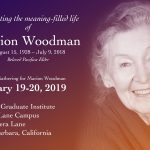
The death of the father: for Forgiveness Sunday by Justin Tse
original article: https://www.patheos.com/blogs/ecperson/2019/03/11/the-death-of-the-father-for-forgiveness-sunday/
I was just sitting down at an intentional Christian community’s arts sharing night when I got the message that my friend Fr Myron Panchuk had died. It was coated in euphemism at first. Fr Myron is in the hospital, my friend said. It doesn’t look good. I understood immediately. I am a pastor’s kid, and that is code for me to give my messenger my whereabouts and how soon I can be picked up to go immediately to the bedside of our friend. Minutes later, as my student — the one who had invited me to the arts night — was reading her creative piece to the assembled group, I got a call. Fr Myron was dead.
I have not cried yet. I am still too angry to do that. This changes nothing, my first reaction was, and for good reason. Fr Myron and I were still in the middle of a disagreement that was both philosophical and theological. For reasons that are confidential, I cannot comment on the persons involved in our dispute. But the general philosophical thrust of it was psychoanalytic, a continuation of our deliberations as the Kyivan Psychoanalysis Study Group. As a priest and a psychoanalyst — one who was actually trained in depth psychology instead of speaking like so many on matters of out of his depth — Fr Myron served as a father figure to many people. He used to tell me stories of his time as a graduate student at the Adler School of Professional Psychology (now Adler University) when his training supervisors noticed that a number of his clients were younger women. Have you become their father? they’d ask him, and in inquiring about the transference, I recognized a commonality with my own father, who is also a trained and licensed community counselor, as he went through his training. My dad also talks constantly of the dangers of counter-transference when his clients project their daddy issues onto him, and while I will continue to deny that I ever saw Fr Myron as a father figure in my own life where I have far too many fathers to negotiate with, the similarity between how he and my biological father discussed transference was remarkable.
I was in the middle of arguing with Fr Myron about whether he cared too much about some people. He’d deny it, saying he really didn’t care at all. I’d say he hadn’t checked his counter-transferences. He’d wax philosophical and say that only when one realizes that the father is absent can one be free. I’d tell him to stop being the father, then.
A week later, the father was dead.
It’s uncanny that a week before Fr Myron died, I wrote a piece about death being the ultimate colonization because there is never a good time for someone to be removed from the community. I can imagine Fr Myron disagreeing with me. Death, I see him saying, in his cranky voice and shoulders shrugged as he slumps in his wheelchair, what is there to be afraid of? It is but another dimension. He’d look at me when he said that out of the side of his eye, with a kind of smirk that belied how his sage words, a vaguely Jungian development of the Freudian (actually Spielreinian lol) death drive, were meant to be a kind of stupid satire too, that he knew he wasn’t entirely serious because he too sang Christos voskres every year and proclaimed the resurrection of Jesus Christ every Sunday, but he really needed to mess with me because it was I who was too serious. It’s why I think it is entirely appropriate for me to be mad at him for being such a jerk and ending our argument about the absence of the father with his own death. He’s in that other dimension now, probably laughing at me between gulps of unlimited varenyky in a vat of borscht all to himself, and from there, he too will rise from the dead. This is not over, I retort. We are the church of Christ Our Pascha, a people whose weekly liturgies focus on our passage from death to life, and so my argument with Fr Myron will most certainly continue into eternity. I will put his picture up in my icon corner soon enough to make sure of it.
Some will say that it’s a little poetic that, given my thoughts, that Fr Myron died on the eve of Forgiveness Sunday. Poetry my ass, I say. Over-dramatic, more like. What does he expect me to do? Forgive him, a sinner, at Forgiveness Vespers?
I told the Christian arts fellowship — most of whom might be offended to be called Protestant, given their neo-Anabaptist leanings — that there was a strange consolation in being there, even though I was thoroughly unprepared. What we were supposed to have done was to prepare an artistic creation — a poem, a song, a film, a work of writing — to share with the group, and I, being an academic, had nothing. I had thoughts, stuff that I was working out in my own intellectual work on Chinese Christians that I wanted to parse through, especially my awkward positioning between church and school, most especially when it came to the questions surrounding queerness and the closet. The first time I told Fr Myron about it, he said that the folks I was studying were colonizers, that Protestant missionaries seem to show up in Ukraine thinking it’s some godless wasteland and have no regard for the fact that Kyivan Christianity has existed for over a millennium. It was at that point that I told him that, indeed, that is why I would much rather be in a colonized church. He perked up, raised himself out of his slouch in his wheelchair. Tell me more about that, he said, and he was serious.
But the intellectual engagement that came of being at the arts collective was only a secondary consolation. The primary one, I said as I sat on the couch — and Fr Myron probably appreciated that — was that my friend had just died, and if I had not come, I’d have been sitting at home reading In the Closet of the Vatican when I got the news. Instead, I was here, surrounded by people, not that I knew any of them except for the student who invited me and her fiancé, and tangentially his Asian American housemate. By some mysterious grace, I was among the people of God, instead of alone, and though I was a mess, presenting the personal bits of my intellectual and theoretical work might be my strangely creative contribution to the collective. I was going to write all of this in my journal, I told them, but maybe today, you are my journal. I could see Fr Myron looking at me out of the side of his eye when I said that, the irony not at all lost on him that I was literally on a couch as I was saying those words.
By even more mysterious grace, some of those people from that arts collective then joined our mission the next day for Forgiveness Vespers. Our mission was a complete mess; thrown into chaos by Fr Myron’s sudden passing, we alternated between relaxing at a family home and getting caught up in funeral arrangements, when suddenly we were late to meet our guests. As much as they were all evangelicals with investments in Asian America — which are networks that both put some premium on punctuality — they were gracious with our delays, even though they had engagements afterward. Bringing myself back to the scene, we must have struck them as the most comical, ragtag bunch of Orthodox Christians they’d ever met. We arrived frazzled, blaming Fr Myron for dying and throwing off our plans. We lit incense, and the smoke alarm went off. We didn’t have enough Vespers books, and as we cobbled together bits from the Triodion and from memory, some whispered that what we were singing wasn’t what was written.
And then, Tranquil Light. Suddenly, from darkness, the window shades were lifted, revealing a glorious sunset. I held the book in front of me with the music, singing from memory, and suddenly what I realized is that if there is another group of people besides Kyivan Christians who can harmonize on sight and by ear, it’s evangelicals with some investment in Asian America. In our little hallway at the apartment icon corner, the place echoed with the sound of our voices. My friend reflected later that it was like a house church, like in the days when our people worshipped underground in Soviet apartment blocks, when bishops posed as janitors and priests were ordained on countertops. That’s another point of contact between Kyivans and the evangelical intersection with Asian America: we’ve all done the house church thing, and we know the intimacy of being together and realizing that Christ too is among us, in the secret of the place where we are worshipping him.
After the service, our friends noticed a bunch of books strewn on the table. Remembering Fr Myron, we’d taken down some of his favourite texts, with selections from Foucault, Lacan, and Žižek. I think there was some comment about how we were rather openly intellectual as a church, although I think that’s more true of Fr Myron than most of our people, and as we were talking, I noticed that among the texts was the classic debate between Slavoj Žižek and John Milbank moderated and edited by Creston Davis entitled The Monstrosity of Christ. It’s one of the places where Žižek makes his fullest case for what he calls the only ‘true atheism’ that can drive a radical emancipatory politics, which is through Christianity. In Hegelian terms that are strangely compatible with Chesterton, what happens on the cross is that the Father and the Son negate each other, and all we are left with, Žižek says, is the Holy Spirit, which is the fellowship of believers who realize that they are all alone in the world, unconstrained by the ‘big Other,’ the Lacanian ‘Name-of-the-Father’ that tells them what to believe.
Only when we realize that the father is absent can we be free, Fr Myron said to me in our last argument, and then he died. Over the time of our short friendship, I have been trying to explain to him what it means and does not mean that I teach Asian American studies, why I might laugh at problematic orientalist jokes while being firmly against the perverse fantasies of orientalism, why engaging Protestants from the position of a colonized church is not to betray my newfound community, how the institutions of academia differ from the church with which he is far more familiar. But in the space of the reader’s service in the apartment, we were just there, praying without a care to the contradictions and with no one to justify them to. It was as if Fr Myron was telling me he didn’t care about my explanations. To do so would have been to treat him as a father. He always wanted to be my colleague, my peer, my friend — just a person. It’s why we argued. Only among persons can disagreements be colorful. It’s like he’s still here, and even though we did not manage to sing the Paschal Canon and Stichera during the Rite of Forgiveness because that would have been way too complicated for our fledgling group, it was like seeing The Monstrosity of Christ on the table was a signal that this was not over, that death does not have the last word because Pascha is coming. Let God arise, let his enemies — death itself! — be scattered, let them that hate him flee from before his face! As smoke vanishes, so let them vanish!
Fr Myron was the winner of our argument about fatherhood. That’s the real reason I’m mad at him for dying. Maybe he was more intentional about not caring about being the father than I thought he was. Of course I have no idea if he was, him being the very complicated human person that he was and will be for all eternity. But given his timing, I’ll take his words about the death of the father into the Great Fast with me. It may have been his greatest contribution to our psychoanalytic collective, and that is why I can’t help but smile a little as I voice my resentment that he was probably right. Христос воскрес із мертвих, смертю смерть подолав, I found myself singing in hushed tones the night he died, і тим, що в гробах, життя дарував!Christ is risen from the dead, trampling death by death, and to those in the tombs giving life! We enter the ocean of the Fast, the Aposticha for Forgiveness Vespers declares, that we might dock at the harbour of the resurrection. Goddamn it, Fr Myron, you will rise from the dead, because Christ is our Pascha! Your burial is not the last word!
If I savour this consolation long enough, I may finally cry.




